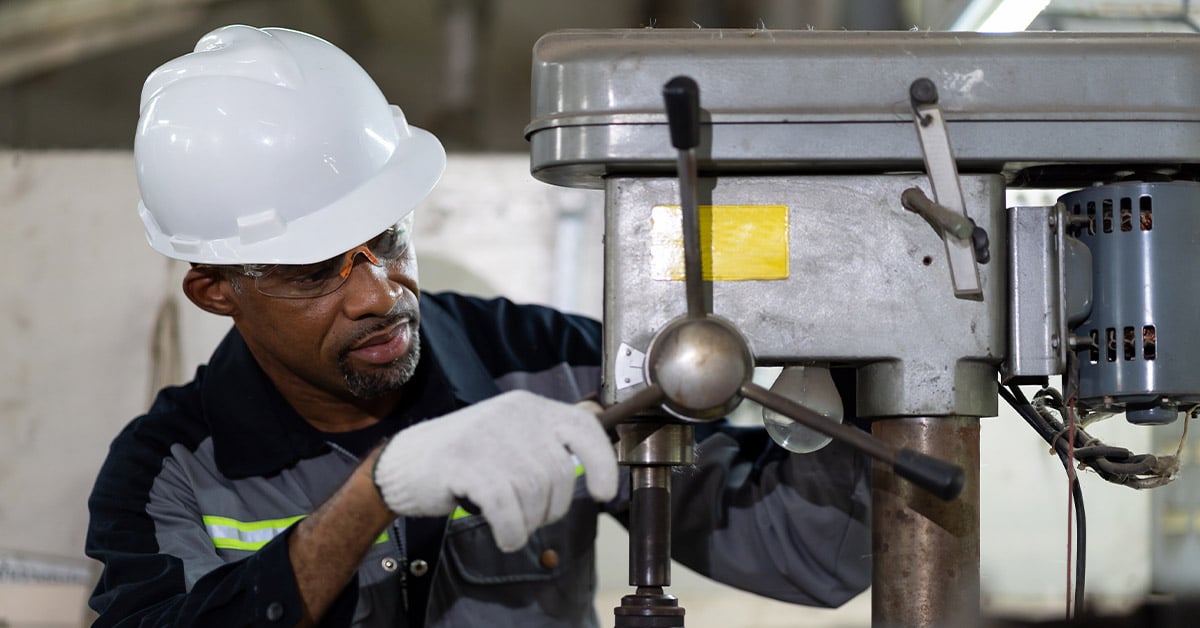Expectations for manufacturing equipment are rising: Managers want better availability and less process variation. At the same time, with advanced PLCs, edge devices and more complex sensors, this equipment is becoming ever more sophisticated. Against this background, preventative and predictive maintenance strategies take on greater importance, leading maintenance managers to ask, “What is a maintenance engineer, and why do I need one?”
What is a maintenance engineer?
The job of maintenance engineers is to maximize the reliability, availability, safety and output of manufacturing machinery within a plant. They may be dedicated to one particular line or area, or they may roam across an entire site. They work with maintenance technicians, who carry out the bulk of the practical work, often under the supervision and direction of the maintenance engineer.
Although the maintenance engineer will be involved in day-to-day servicing and troubleshooting, their focus is on:
- Supporting advanced control systems
- Identifying ways to improve equipment reliability
- Communicating with other functions to understand production needs and translate those into maintenance strategies
Maintenance engineering
Maintenance is at the heart of the modern manufacturing plant. It keeps the machinery running that generates revenue and profit. Maintenance engineering is the discipline of performing the maintenance needed, striving to maximize equipment availability, safety and productivity while minimizing maintenance costs.
As maintenance has taken on increasing importance, so too has the need for effective maintenance strategies. In every plant, particularly those with continuous or closely linked processes and especially those with serious safety hazards, managers continually review and update the way maintenance is performed.
Today the “run to failure” strategy is reserved for the very few pieces of equipment where breakdown can be tolerated. Most plant maintenance engineers instead prefer to operate preventative maintenance where inspection and servicing are performed to reduce the risk of breakdown.
On critical equipment conditions, monitoring is increasingly common, using sensors to detect abnormalities in particular key components. This enables repair work to be scheduled for when it has less impact on production.
Looking forward, many plants are adopting predictive maintenance strategies. These use the data captured in a computerized maintenance management system (CMMS), along with sensors and powerful analytical tools, and even AI to determine when work will be needed. This results in better targeting of maintenance efforts, avoiding unnecessary work while anticipating and preventing failures.
What does a maintenance engineer do?
The objective is to keep production equipment operating safely, at the required speed and with the expected quality of output. Achieving this requires the maintenance engineer to:
- Troubleshoot equipment problems and identify solutions
- Resolve problems by making adjustments or replacing parts as necessary or guide engineering maintenance technicians to do so
- Improve overall performance by identifying and implementing appropriate improvements to control, electrical, hydraulic, pneumatic and mechanical systems
- Perform routine inspections and servicing
- Use the CMMS to identify and implement equipment-specific maintenance strategies
- Ensure CMMS records are kept current
Maintenance engineer skills
A maintenance engineer needs a diverse set of talents. These include the ability to operate as part of a team, a sense of urgency and a willingness to work on a problem until it is resolved. Specific skill requirements are:
- Well-developed problem-solving abilities
- A good aptitude for mechanical, electrical and fluid systems and familiarity with the tools needed to work on them
- An understanding of factory control technologies (principally PLCs but also communication interfaces such as Profinet and RS232)
- The ability to read engineering drawings and schematics
- Good communications skills
- A high level of awareness of industrial safety hazards and how to work safely in a manufacturing environment
In addition, training on specific machines and controllers speeds up problem-solving and aids in identifying and performing routine maintenance tasks.
Maintenance engineer certifications
Certification demonstrates an engineer has achieved a high level of competence in performing maintenance engineering work. This differs from training, which is specific to particular machines and types of equipment. Training is often provided by equipment manufacturers during or after installation and commissioning. In addition, many community colleges offer training on equipment such as PLCs and pneumatic systems.
The main independent certification for those working in maintenance is that of Certified Reliability Engineer (CRE). Run by the American Society for Quality (ASQ), this evaluates the understanding of the Body of Knowledge as it relates to reliability.
A certification relevant in some sectors is EPA 608. This relates to working on systems using refrigerants that could be released into the atmosphere. Air conditioning and chiller systems are the main examples.
Maintain and improve
As industrial equipment becomes increasingly complex, demand is growing for people with the skills to keep it running. The maintenance engineer proactively looks for ways to improve reliability while also working with technicians to troubleshoot and solve immediate problems.
ATS helps manufacturers with industrial maintenance strategies and technical support. Contact us to learn more.


